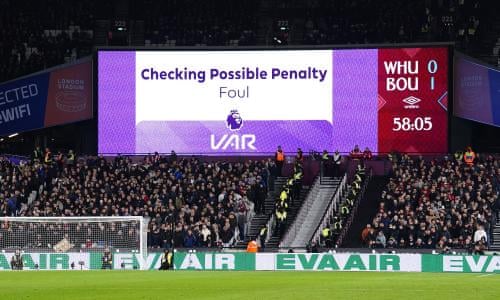
Technology is playing an increasingly pivotal role in modern football, and La Liga stands at the forefront of this digital revolution. From the implementation of VAR to sophisticated analytics and enhanced fan engagement, Spain's top flight is leveraging technology to elevate the beautiful game to unprecedented heights. Here's a closer look at how these advancements are reshaping the landscape of La Liga.
VAR and Officiating
The introduction of the Video Assistant Referee (VAR) system in La Liga has been nothing short of transformative. Initially met with skepticism, VAR has evolved into a vital tool for referees, ensuring that the correct decisions are made on the pitch. By providing real-time video replays, VAR has significantly reduced human error, a perennial issue in football officiating.
One of the most notable impacts of VAR is on decision-making regarding goals, penalties, and red cards. For instance, the system's ability to review offside calls has been particularly beneficial. The precision brought by VAR has minimized controversial decisions, leading to a fairer competition. However, it has not been without its challenges, as debates about subjective calls, such as handballs and fouls, continue to stir discussions among fans and pundits alike.
Despite its imperfections, the integration of VAR in La Liga has improved the overall flow of the game by allowing referees to make more accurate decisions. The system has also contributed to the discipline on the field, as players are now more conscious of their actions, knowing they are under the scrutiny of cameras.

Advanced Analytics
Beyond officiating, technology is revolutionizing how teams prepare and perform. Advanced analytics has become an indispensable tool for La Liga clubs, providing in-depth insights into player performance and tactical setups. Through data analytics, teams can assess player fitness, monitor workloads, and even predict injury risks.
For example, clubs like Real Madrid and Barcelona employ sophisticated data systems to analyze match performances and training sessions. These analytics help coaches tailor their strategies and make informed decisions about player selections. Additionally, performance metrics such as expected goals (xG), pass completion rates, and player heat maps are now routine components of tactical discussions.
This data-driven approach allows teams to exploit the weaknesses of their opponents while reinforcing their strengths. The meticulous analysis of match data not only enhances team performance but also contributes to the development of young talents by identifying areas for improvement.
Fan Engagement
In an era where fan engagement is paramount, La Liga has embraced technology to bring supporters closer to the action. Innovations such as virtual reality (VR) experiences, augmented reality (AR) apps, and interactive digital platforms are enhancing how fans interact with the league.
La Liga's official app offers fans real-time match updates, exclusive content, and behind-the-scenes access to their favorite teams. Additionally, clubs are using social media platforms to engage with their global fanbase, providing a continuous stream of content ranging from live match commentary to player interviews.
Stadiums in Spain are also integrating cutting-edge technology to improve the matchday experience. High-speed Wi-Fi, cashless payment systems, and digital ticketing are becoming standard features in La Liga venues, ensuring that fans enjoy a seamless and immersive experience.

Future Innovations
Looking ahead, the technological evolution in La Liga shows no signs of slowing down. Emerging technologies such as artificial intelligence (AI) and machine learning are poised to further transform the league. AI could enhance tactical analysis by predicting opponent strategies, while machine learning algorithms might offer new insights into player development and scouting.
Furthermore, the potential of 5G technology could revolutionize how content is consumed, providing ultra-fast streaming and real-time data access. Fans could experience matches like never before, with multi-angle replays and virtual match environments becoming commonplace.
La Liga's commitment to innovation is evident in its continuous investment in technology. By embracing these advancements, the league not only enhances the quality of football on display but also strengthens its position as a leader in global sports entertainment.
In conclusion, technology is undeniably enhancing the game in La Liga, from improving officiating with VAR to enriching fan experiences through digital platforms. As the league continues to integrate cutting-edge solutions, the future of football in Spain promises to be more exciting, equitable, and engaging than ever before.